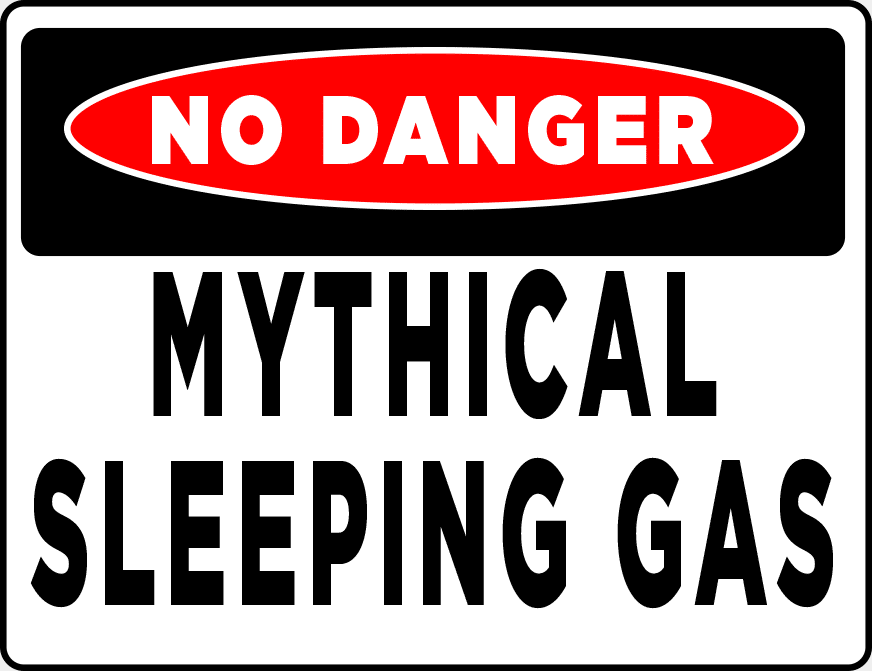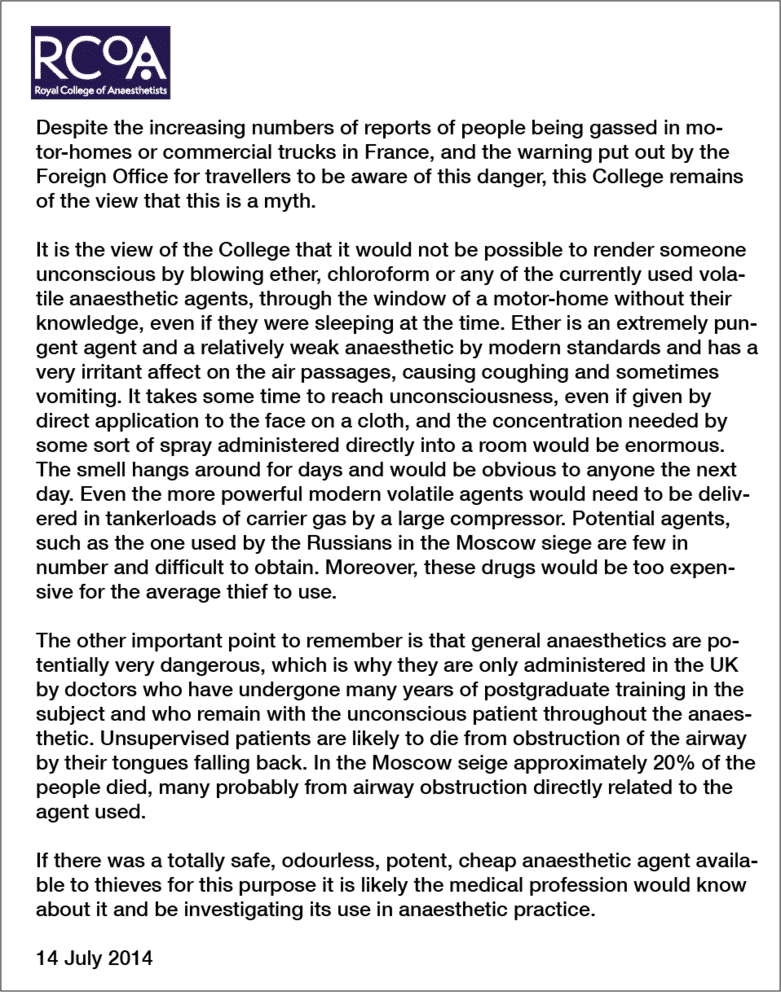If you believed everything you read in the newspapers, you might think so. Every summer, at least one headline appears about a supposed gas attack on motorhomers—usually in French or Spanish motorway service stations.
According to the reports, victims are gassed in their sleep and wake up to find valuables missing—typically around £2,000 in cash, passports, cameras, and iPads. These stories are alarming and tend to spread quickly, often following a familiar pattern with only the names and locations changed.

We remember and share these stories because they frighten us. The idea of being asleep in a motorhome while intruders silently rob us is chilling—it’s the stuff of nightmares.
Waking up to find your belongings gone, knowing someone was inside your motorhome while you slept, seems incomprehensible. How could it happen without anyone waking? It feels like the only explanation must be gas—somehow, you were drugged.
But is that really logical?
How did the robbers get the gas inside the motorhome? How did they know how much to use? How did they manage to dose everyone just right—regardless of body size—without causing harm?
If such a gas existed, easy to administer and with no after-effects, why isn’t it used in medicine? And why would these criminals, with access to this miraculous substance, limit its use to a few British holidaymakers and the occasional lorry driver?
This is what the Royal College of Anaesthetists say about Motorhome Gas Attacks.

People often assume gas is involved simply because there’s no clear explanation. Maybe that’s a natural reaction—but in my professional opinion, based on all the evidence I’ve seen, the gas theory is reached far too quickly and without enough critical thought.
Every year, thousands of people wake up at home to find they’ve been robbed—yet no one suggests gas was used there.
What’s striking is how similar these supposed “motorhome gas attack” cases are. They often involve people sleeping on motorway aires, in unsecured motorhomes, carrying £2,000 in cash and a few iPads.
It’s a story that keeps repeating itself. But it’s myth.



